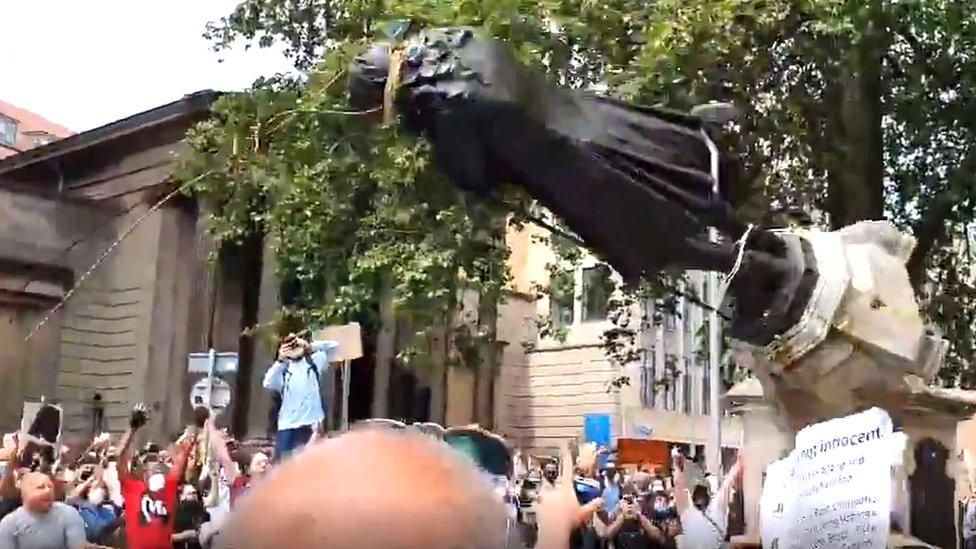Bristol history examined after Colston statue toppling
- Published
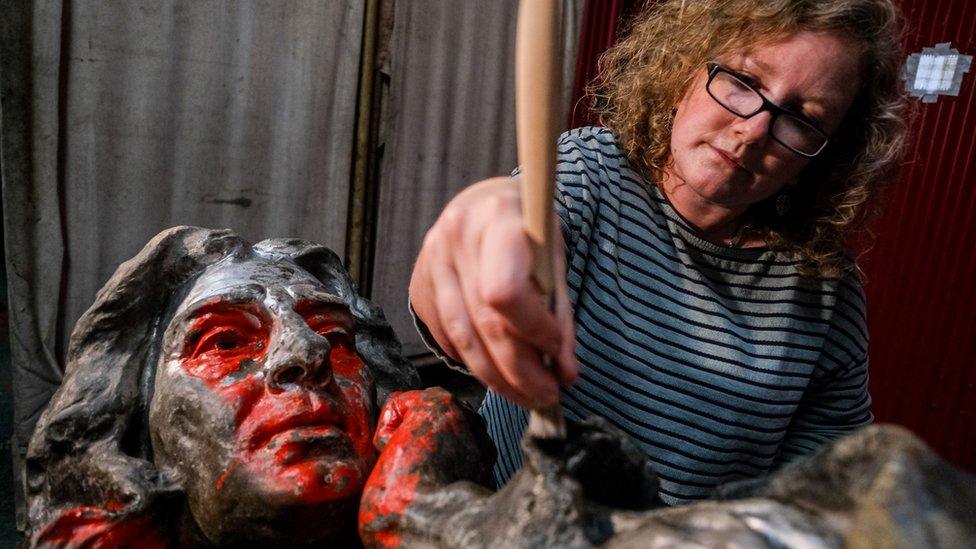
The commission will also consider the role of wars, protests, industry, innovation, transport, housing, migration and faith in the development of the city
A new commission examining Bristol's historical links with slavery in the wake of the Edward Colston statue toppling has met for the first time.
The We are Bristol group was created by mayor Marvin Rees to help the city "better understand its history".
Prof Tim Cole, the group's chair, said it was time the city took "a long hard look at its history".
But Mark Steeds, from Bristol Radical History Group, said it was a "knee jerk reaction" to the statue coming down.
The commission includes TV presenter and historian David Olusoga, as well as university professors and councillors.
Bristol City Council said it was set up "after the events of this summer" and its work would "include the history of slavery" as well as the "full scope of events that have impacted the city".
Mr Rees said it was an "important step in helping us all live with difference".
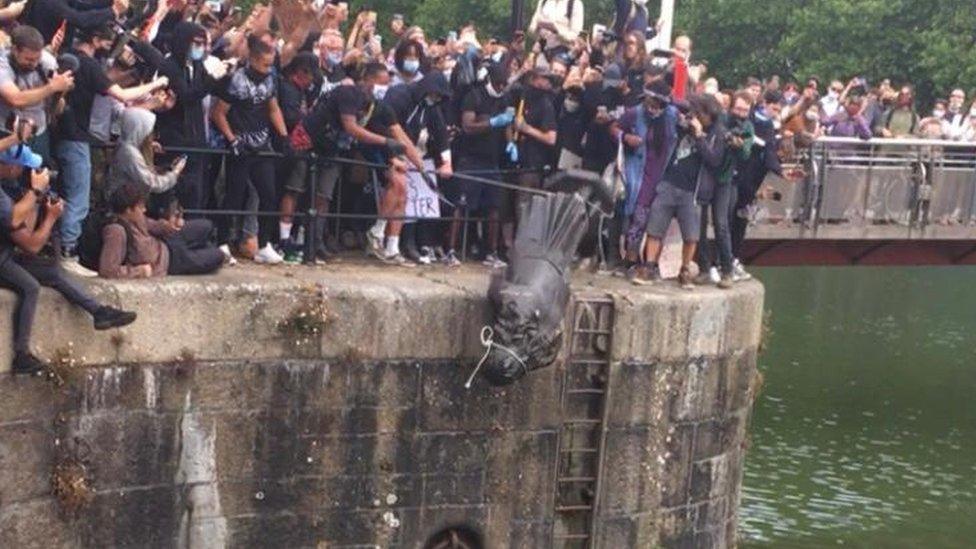
The commission was announced after the Edward Colston statue was pulled down and dumped into Bristol Harbour during an anti-racism protest
The bronze statue of the 17th Century slave merchant was pulled from its plinth during a Black Lives Matter protest in June and thrown in the harbour.
It was recovered four days later, and is currently being looked after by the city council.
Mr Cole said its toppling was "very much the departure point" but was "not the sole focus".
"It does suggest that it is time for the city to take a long hard look at its history and have a period of reckoning and reflection," he said.
He said he and his fellow commissioners were "doing this for free" and expected it would take a couple of years.
But Mr Steeds questioned the commission's purpose and objective.
"There's hundreds and hundreds of specialists books on nearly every aspect of Bristol's history. I'm at a loss as to exactly what the use of the commission is," he said.
- Published17 June 2020
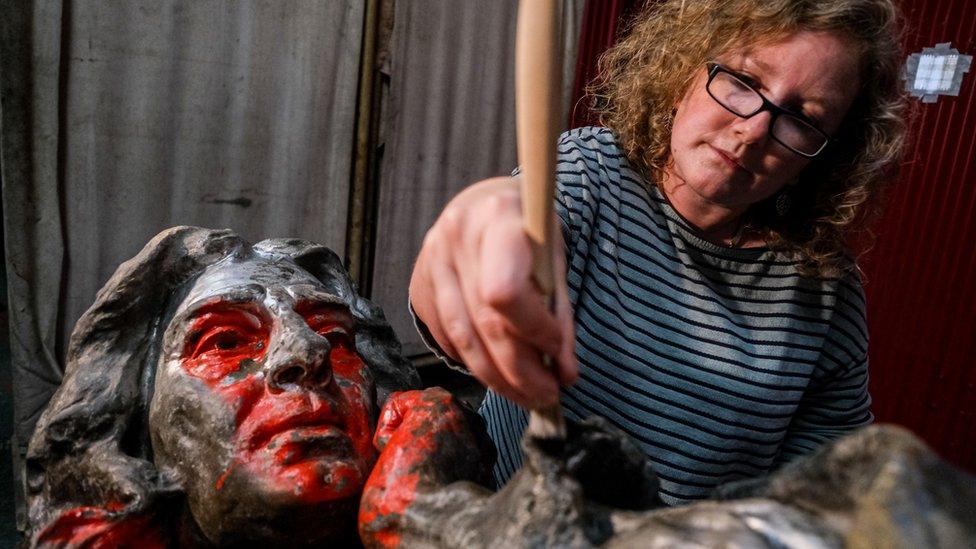
- Published15 June 2020
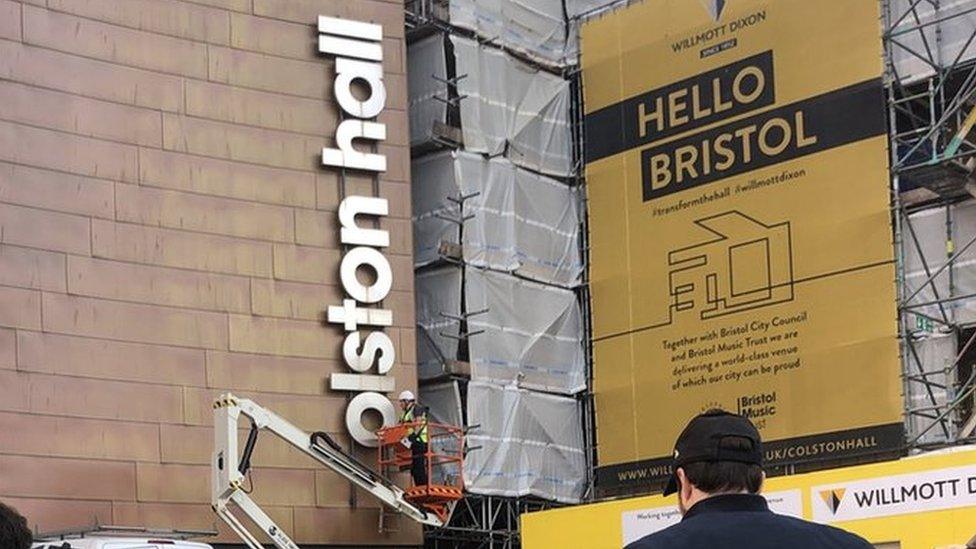
- Published11 June 2020
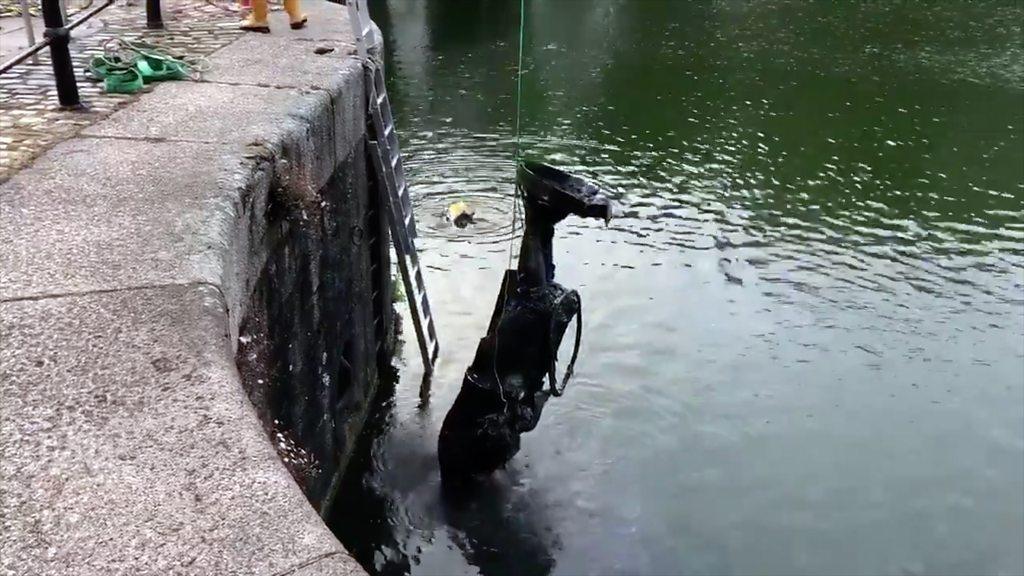
- Published8 June 2020
